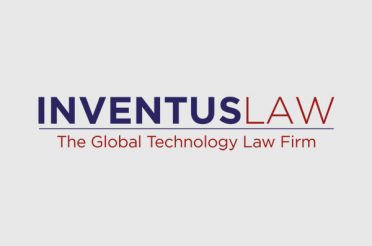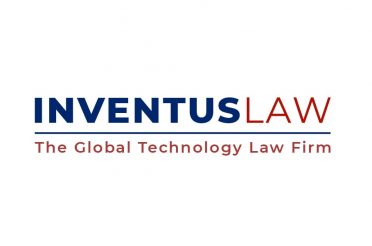NAVIGATING THE COMPLEX LANDSCAPE OF NFT REGULATION: RECENT SEC ACTIONS UNPACKED
By Chirayu Biyani
The world of Non-Fungible Tokens (NFTs) has seen a meteoric rise in recent years, with artists, creators, and collectors flocking to this digital frontier. NFTs have unlocked new possibilities for the ownership and trading of unique digital assets, from digital art to virtual real estate. However, as the NFT market grows, so does the scrutiny from regulatory bodies. The recent actions by the U.S. Securities and Exchange Commission (SEC) against Impact Theory, LLC, and Stoner Cats 2, LLC, illuminate when NFTs are more than passive assets, so that the creators are really offering an investment contract (i.e., a “security”) which they are undertaking to manage for the purchaser’s potential to profit.
The SEC’s Emerging Role in NFT Regulation
The SEC’s entry into the NFT space has raised questions about the legal classification of NFTs. NFTs are, by definition, unique and non-fungible, meaning each token is distinct and cannot be directly exchanged for another, unlike cryptocurrencies such as Bitcoin or Ethereum. The allure of NFTs lies in their potential for ownership and provenance of digital assets, creating a bridge between the physical and digital worlds.
The recent SEC actions against Impact Theory and Stoner Cats 2 represent the agency’s first public enforcement efforts against NFT issuers under federal securities laws. The SEC’s involvement underscores the growing importance of NFTs and their potential economic impact. The actions taken against these NFT issuers, therefore, merit a closer examination.
Impact Theory’s Case: A Deep Dive
The case against Impact Theory, a media and entertainment company headquartered in Los Angeles, revolves around its offering of NFTs known as “Founder’s Keys.” These Founder’s Keys came in three tiers: “Legendary,” “Heroic,” and “Relentless,” with each featuring a unique digital image. Impact Theory marketed these NFTs as investments into their business, emphasizing that investors would profit if Impact Theory succeeded in its ventures.
According to the SEC’s order, the heart of the issue lies in Impact Theory’s marketing efforts and public statements. The company’s promotional activities encompassed a wide range of platforms, including the company’s website, Discord, YouTube, and other social media outlets. Impact Theory’s statements led investors to form reasonable expectations of returns on their investments, primarily based on the company’s managerial and entrepreneurial efforts to grow the business.
For instance, Impact Theory made promises to use the funds raised through NFT sales to enhance the company. They spoke about hiring, developing additional projects, and allocating resources to deliver substantial value. The company even likened investing in Founder’s Keys to early investments in iconic brands like Facebook, Disney, Call of Duty, and YouTube. This rhetoric created a link between the fortunes of Founder’s Key purchasers, Impact Theory, and the company’s founders. In essence, Impact Theory’s actions and statements suggested that buying these NFTs was akin to investing in a budding enterprise.
Stoner Cats 2’s Case: A Parallel Universe
The SEC’s case against Stoner Cats 2, LLC, follows a similar pattern. Stoner Cats 2 sold NFTs associated with an animated web series named “Stoner Cats,” where each NFT represented a unique character from the show. This offering was heavily promoted through various media channels, including YouTube, Twitter, Instagram, podcasts, and even network and cable television interviews.
What made these NFTs particularly intriguing was that purchasers did not have the option to choose a specific NFT; instead, they received a random token. Stoner Cats 2 retained all commercial rights to the underlying intellectual property, including the images of the Stoner Cat characters. The offering was laced with expectations of profit. The SEC alleged that SC2 encouraged buyers to believe in the potential of profit through the NFTs based on the company’s management efforts. The benefits of owning the NFTs included exclusive access to Stoner Cats content, engagement with the creators, and, crucially, the ability to resell the NFTs on the secondary market.
Additionally, the SEC pointed out that Stoner Cats 2 would receive a 2.5 percent royalty for each secondary transaction in Stoner Cats NFTs on a marketplace they had partnered with, creating incentives for the company to stimulate secondary market activity. This royalty mechanism provided NFT owners with confidence that Stoner Cats 2 remained committed to the animated show’s success.
SEC’s Regulatory Perspective: The Howey Test
To understand why the SEC took action against Impact Theory and Stoner Cats 2, it’s essential to explore the regulatory framework underpinning these actions. The SEC invoked the “investment contract” concept, a key element of the Securities Act of 1933, in both cases. This notion stems from the famous SEC v. W.J. Howey case, where the Supreme Court defined an investment contract as an “investment of money in a common enterprise with a reasonable expectation of profits to be derived from the efforts of others.”
The SEC’s orders, while not offering a point-by-point breakdown of their Howey analysis, indicate that both Impact Theory’s Founder’s Keys, and Stoner Cats 2’s NFTs, were offered and sold as investment contracts. The crux of the matter lies in the economic reality created by the NFT issuers’ actions and marketing efforts. These actions induced investors to anticipate profits based on the entrepreneurial and managerial efforts of the issuers.
In the case of Impact Theory, their extensive marketing campaign, coupled with public events and online content, convinced investors that investing in Founder’s Keys was akin to investing in a growing company. The SEC concluded that Impact Theory’s actions fostered the belief that success in their endeavors would translate to increased value for Founder’s Key holders.
In the Stoner Cats 2 case, the company’s marketing activities, from interviews to podcasts, emphasized the expertise and ability of the team behind the animated web series. The proceeds from the NFT sale were presented as funding for the show’s production, and benefits such as exclusive access and the ability to resell on the secondary market heightened expectations of profit. The 2.5 percent royalty on secondary transactions further solidified the connection between Stoner Cats 2’s success and potential returns for NFT owners.
Takeaways:
It’s vital for companies involved in NFTs to be attentive to the increased scrutiny by the SEC. The SEC has been hinting for nearly a year about its close watch on NFT activities, with a notable example being its investigation into Yuga Labs, the creators of “Bored Ape” NFTs, to assess potential unregistered securities offerings.
Moreover, the SEC’s starting point is clear: NFTs marketed as “collectibles” may fall under the umbrella of securities regulation. The SEC’s use of “purported” to describe Founder’s Keys NFTs implies that not all NFTs are subject to securities laws. This raises an intriguing question: does the “F” in NFT, standing for “fungibility,” factor into the Howey analysis used to classify tokens as investment contracts? It’s plausible that genuinely non-fungible tokens, those that are entirely unique or extremely rare, may not be categorized as investment contracts under specific conditions. Nevertheless, neither the Impact Theory nor the Stoner Cats order provides explicit guidance on this matter.
Given these developments, companies deeply entrenched in the NFT landscape should thoroughly assess how an NFT’s characteristics, marketing strategies, tradability, and the development of a comprehensive “ecosystem” can create an anticipation of profit primarily tied to the perceived efforts of the issuer. Furthermore, these companies should carefully weigh the consequences of maintaining an interest in their NFTs and revealing plans for future project development funded through NFT sales in project forums.







